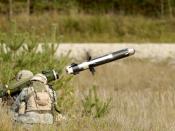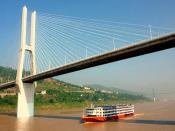Introduction
KFC operates in 74 countries and territories throughout the world. It was founded in Corbin, Kentucky by Colonel Harland D. Sanders. y 1964, the Colonel decided to sell the business to two Louisville businessmen. In 1966 they took KFC public and the company was listed on the New York Stock Exchange. In 1971, Heublein, Inc. acquired KFC, soon after, conflicts erupted between the Colonel (which was working as a public relations and goodwill ambassador) and Heublein management over quality control issues and restaurant cleanliness. In 1977 a "back-to-the-basics" strategy was successfully implemented. By the time KFC was acquired by PepsiCo in 1986, it had grown to approximately 6,600 units in 55 countries and territories. Due to strategic reasons, in 1997 PepsiCo spun off its restaurant businesses (Pizza Hut, Taco Bell and KFC) into a new company called Tricon Global Restaurants, Inc.
Reasons for going overseas
Companies moves beyond domestic markets into international markets for the following reasons:
*Potential demand in foreign market
*Saturation of domestic markets
*Follow domestic customers that go abroad
*Bandwagon effect
*Comparative advantage - some countries possess unique natural or human resources that give them an edge when it comes to producing particular products.
This factor, for example, explains South Africa's dominance in diamonds, and the ability of developing countries in Asia with low wage rates to compete successfully in products assembled by hand.
*Technological advantage - In one country a particular industry, often encouraged by government and spurred by the efforts of a few firms, develops a technological advantage over the rest of the world. For example, the United Sates dominated the computer industry for many years because of technology developed by companies such as IBM, Hewlett-Packard and Intel
Organization structures for International Markets
(Modes of Entry)
*The mode of entry affects a company's...


